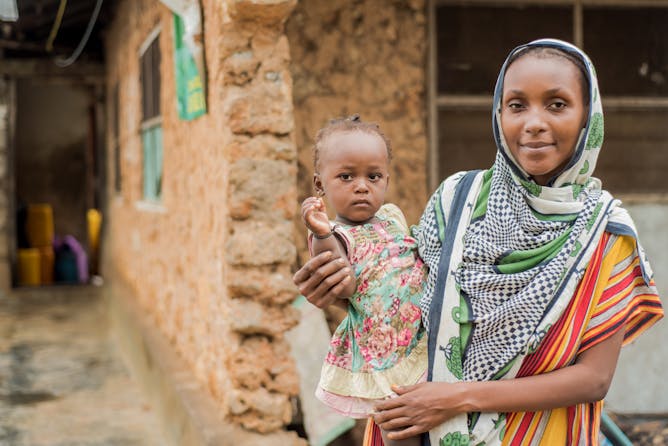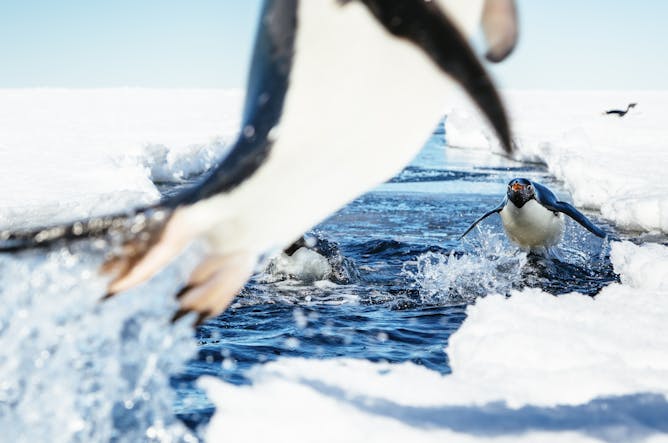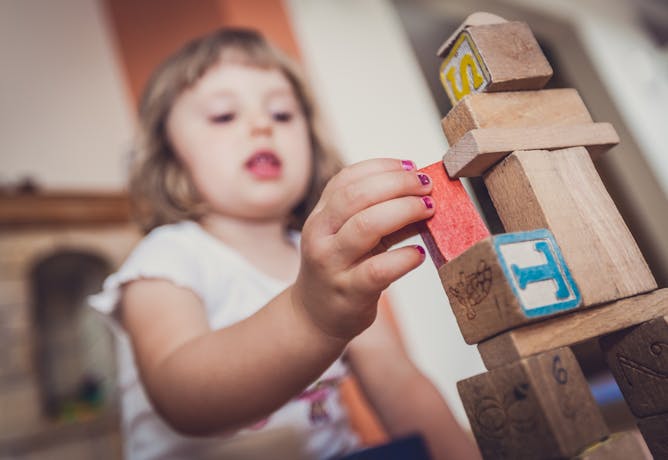| |
|
|
|
|
|
|
| |
|
Editor's note
|
|
Even in global development circles, women get sidelined. NGOs run by women in India and Tanzania have successfully helped to improve lives - but the women get marginalised once the projects expand, according to Bipasha Baruah and Kate Grantham.
Antarctica is seen by many as an almost mythical land: remote, isolated and a magnet for pioneers who want to explore the unknown. Chris Fogwill, Chris Turney and Zoe Robinson explain how new research shines light on the importance of the continent, overturning centuries of misunderstanding and highlighting the role of Antarctica in how our planet works and the role it may play in a future, warmer world.
Gadgets and devices are likely to feature heavily on many children’s gift wish list. But, write Kym Simoncini and Kevin Larkin, don't ignore the importance of blocks when choosing your children’s presents - they're vital to children's learning.
|
Lee-Anne Goodman
Politics, Business & Economics
|

|
|
Top Stories
|

Women’s NGOs work hard to improve the lives of women in the developing world, including in countries like India and Tanzania. But then they’re often cut out from the process. This photo was taken in the remote village of Uzi on Zanzibar Island in Tanzania in April 2016.
(Shutterstock)
Dr. Bipasha Baruah, Western University; Dr. Kate Grantham, McGill University
NGOs (non-government organizations) run by women in India and Tanzania fuel the success of development projects, but the women are too easily marginalized once the projects get off the ground.
|

The continent is home to 12 million penguins…and not much else.
Andrew Peacock, footloosefotography.com
Chris Fogwill, Keele University; Chris Turney, UNSW; Zoe Robinson, Keele University
The Antarctic Treaty was signed 58 years ago today, protecting the continent for peace and science.
|

Christmas lists usually suggest the latest and greatest technology, but blocks are still the best toy you can buy your child.
Shutterstock
Kym Simoncini, University of Canberra; Kevin Larkin, Griffith University
Blocks probably won't top Christmas wish lists, but they have many benefits including developing fine motor skills, social, cognitive and language skills, and spatial reasoning and language.
|
Arts + Culture
|
-
Sean Lang, Anglia Ruskin University
It looks as if a state visit from the US president is on the cards. But the Queen is a veteran at hosting unwanted guests.
-
Jenna Drenten, Loyola University Chicago; Lauren Gurrieri, RMIT University
The 'bikini bridge' may have been a hoax, but its damage to women's body image was real, demonstrating yet again the disturbing set of pressures social media places on young women.,
|
|
Cities
|
-
André Stephan, University of Melbourne; Aristide Athanassiadis, Université Libre de Bruxelles
With an ever-increasing cost to extract dwindling raw materials, it's time to look at cities as urban mines. We're developing the tools to do that.
|
|
Politics + Society
|
-
Claire Elder, University of Oxford
The self-declared territory of Somaliland has held peaceful elections since it broke away from Somalia in 1991. But last month's polls triggered protests that should be cause for reflection.
-
Fabio Andres Diaz, International Institute of Social Studies
Conservative congressional reps in Colombia have been stalling votes on key parts of the country's peace accords through endless petitions and nonstop debate. In short, they're filibustering.
-
Frank Mattheis, University of Pretoria; John Kotsopoulos, University of Pretoria
The transformation of the EU-Africa summit series into the EU-AU summit is more than just a change of name. It reflects the increasing recognition of the AU as an international actor.
|
|
| |
| |
| |
| |
| |
| |
|
|
|
|
|
|
|
|